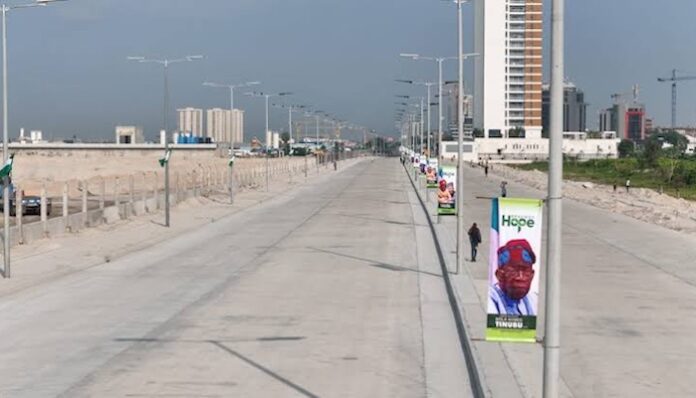A prominent civil society organisation, the Network for the Actualisation of Social Growth and Viable Development (NEFGAD), has raised strong objections to plans by the Minister of Works, Engr. David Umahi, to commission a small section of the Lagos-Calabar Coastal Highway project, describing the move as premature and misleading.
In a statement issued by its Country Head, Mr. Akingunola Omoniyi, NEFGAD said the minister’s plan to present a 30-kilometre stretch of the highway as completed falls far short of expectations for a project of national significance.
The 750-kilometre Lagos-Calabar Coastal Highway, described as a transformative infrastructure project, is designed to connect several coastal states, stimulate economic growth, and improve regional connectivity. However, NEFGAD insists that the project is far from complete and that commissioning just 30 kilometres—barely 4% of the total length—sends the wrong message to Nigerians.
“We caution against the politicisation of infrastructure delivery,” the statement read. “Commissioning should be based on actual completion and functional use of either the entire project or a major section that significantly benefits the public.”
The group warned that setting such a precedent could normalise the celebration of uncompleted projects and reduce national infrastructure efforts to mere political showmanship. “The minister must be mindful of the kind of precedent this action sets. Turning incomplete works into political photo opportunities undermines public trust,” NEFGAD said.
The group further stated that President Bola Tinubu should not be pressured into commissioning projects that are clearly not ready. It reminded the public that governance is a continuous process, and not all projects need to be completed within a single administration.
“President Tinubu himself inherited projects from previous administrations, completed them, and commissioned them only after they were fully ready. That should remain the standard,” NEFGAD noted.
The advocacy group urged the presidency to demand full transparency and accountability in how infrastructure projects are presented to the public. It also called on the Ministry of Works to ensure that project milestones reflect real, measurable progress.
“The people deserve full value for every public project—not ribbon-cutting ceremonies that disguise incomplete work as finished achievement,” the statement continued. “We are urging the Ministry of Works to recommit to credible timelines, integrity in project delivery, and avoid misleading Nigerians with half-baked results.”
NEFGAD added that proper project execution, not public relations gimmicks, is what will ultimately define the legacy of the current administration.
The Lagos-Calabar Coastal Highway, which cuts across several South-South and South-West states, has been in the spotlight due to its huge cost, displacement concerns, and potential economic impact. While some see it as a bold step towards improving infrastructure, others have called for greater scrutiny of its implementation and funding model.
As Nigerians watch closely, NEFGAD’s warning highlights the importance of not only delivering major infrastructure projects but doing so with integrity, accountability, and clear benefits to the people.
The group concluded by urging civil society, the media, and the general public to stay vigilant and hold officials accountable, saying, “Public infrastructure must be about people—not politics.”
